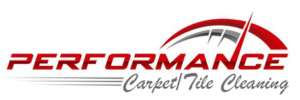Marble Floor Cleaning
Marble Care, Maintenance, Cleaning, Restoration & Sealing
Marble Floor Cleaning is a “relative” of limestone, having been derived from that particular stone, and having undergone further development while deep in the earth over the course of millions of years. Marble is a metamorphic rock, having been subject to tremendous heat and pressure to the point where various fossilized materials, along with the original limestone and sundry minerals, have become re-crystallized unlike man-made tile floors. This process changes the rock from limestone to what we would recognize as marble. This naturally decorative material is characterized by vein-like patterns which vary depending on which minerals, and which quantities of those minerals, were present during the re-crystallization of the original limestone parent rock. These patterns offer the unique appearance known to many, as well as the rich range of colors that are some of the most vibrant available in any natural stone.
while deep in the earth over the course of millions of years. Marble is a metamorphic rock, having been subject to tremendous heat and pressure to the point where various fossilized materials, along with the original limestone and sundry minerals, have become re-crystallized unlike man-made tile floors. This process changes the rock from limestone to what we would recognize as marble. This naturally decorative material is characterized by vein-like patterns which vary depending on which minerals, and which quantities of those minerals, were present during the re-crystallization of the original limestone parent rock. These patterns offer the unique appearance known to many, as well as the rich range of colors that are some of the most vibrant available in any natural stone.
Available in a wide range of colors, marble is often used for its beauty, but is more porous, softer, and chemically sensitive than granite. Marble surfaces show wear sooner than granite, but can be restored with honing and polishing more easily. Etched by acids, including soft drinks and juice. Absorbs oils and other liquids and is easily stained. So putting marble in a kitchen or heavily used bathroom is not a good idea. Best use of marble is for powder baths, table tops, tub surrounds, a marble shower, floor tile and stone fireplace surrounds.
Composed of Calcite and Calcium Carbonate. Should be sealed with a penetrating sealer such as BulletProof™ or Impregnator Pro to prevent staining and reduce soiling. Should only be cleaned with neutral pH detergents such as Revitalizer™ or Stone & Tile Cleaner. Because it is soft, it should never be cleaned at pressures above 800 PSI and then only if the grout is in good condition.
Note that almost all Green Marble is actually Serpentine, not Marble. Black Granite is generally Basalt and is charged a higher import duty.
Marble ranges from 1 to 4 on the MOH scale (a scale for determining the relative hardness of a mineral according to its resistance to scratching). The hardest mineral, at 10, is diamond. The softest mineral, at 1, is talc (baby powder).
Black Marble, such as Negro Marquina, is a very soft limestone often mistaken as a marble. Not recommended for interior flooring. Never use a crystallizer on black marble – The stone will blister or spall! If honing or polishing, use extreme care not to leave swirls and do not run until the powder has dried. Check frequently – polishes very quickly!
If you would like to test your floor or sample of Absolute Black Granite you can use both StoneTech™ Professional Restore™ and StoneTech™ Professional KlenzAll™ for Marble Floor Cleaning as testing liquids. We recommend you apply each of these cleaners in separate inconspicuous areas, let them stand for 30 minutes, rinse the surface and allow to dry.

